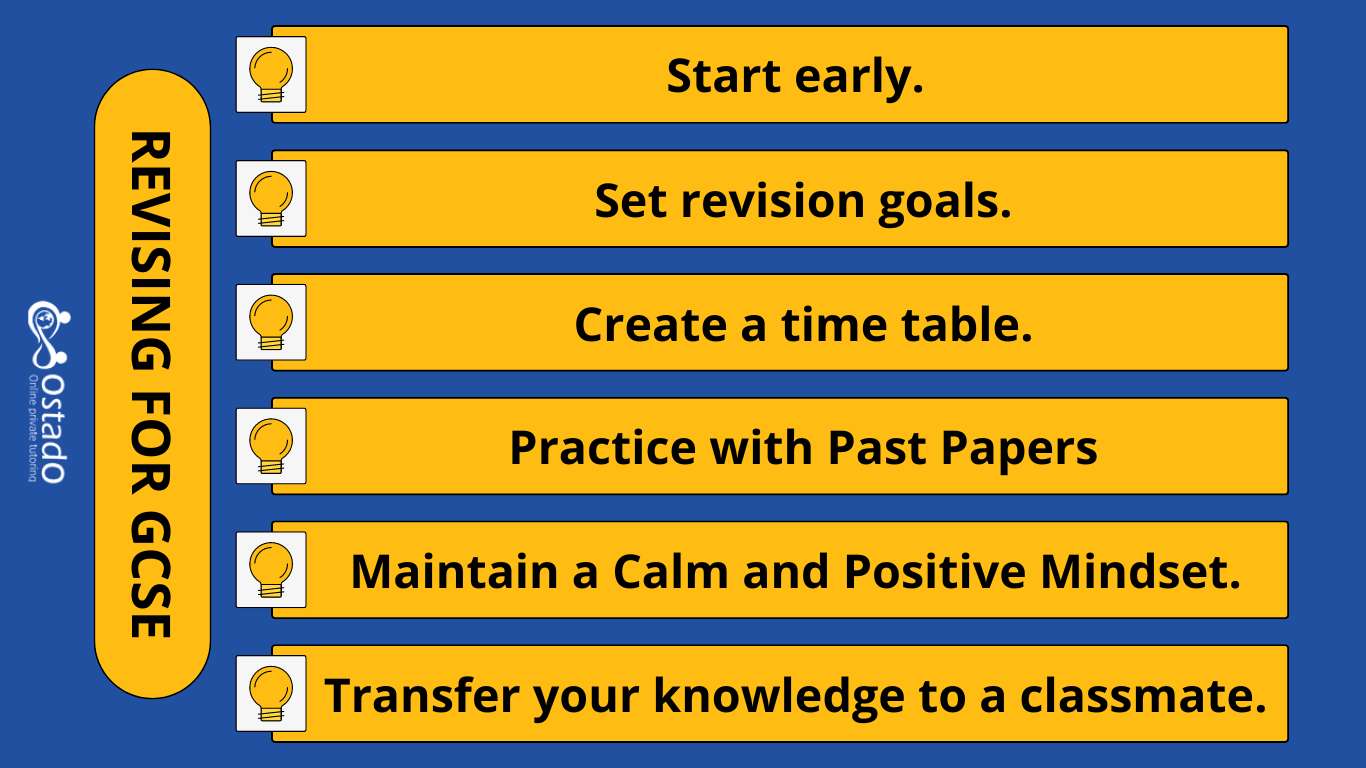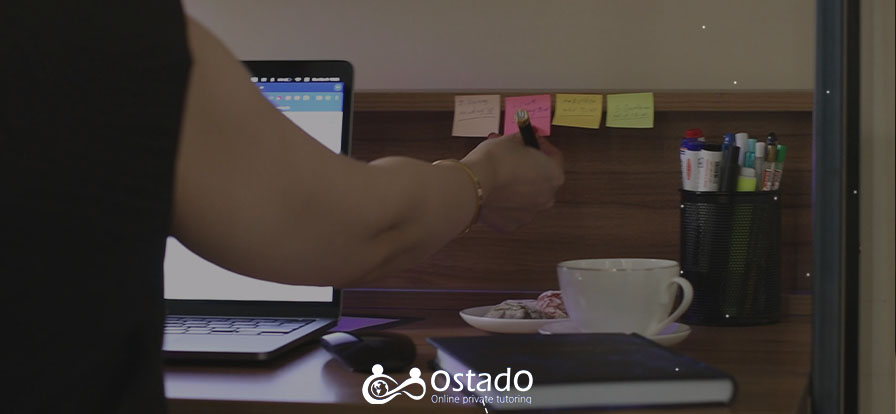The General Certificate of Education (GCSE) qualification lays the foundation for pupils’ further education and is a game-changer in the pupils’ future careers. Therefore, pupils should plan and prepare to succeed in attaining this qualification. Revising for the Combined Sciences GCSE can significantly improve the exam results. In this article, I will tell you how to revise for the GCSE exam and provide you with practical tips and useful links that increase your overall readiness for taking the GCSE Science exams.
- Identify your learning style and adapt learning strategies accordingly.
- Help a struggling classmate by transferring your knowledge.
- Familiarise yourself with the exam through practice papers and past papers.
- Learn about exam boards and their exam formats.
- Take care of yourself.
- Cover all aspects of the exam.
GCSE Combined Science vs GCSE Triple Science
The main difference between GCSE Combined Science and GCSE Triple Science (also known as Separate Sciences) is that in the latter, each subject is assessed more comprehensively than the former.
So, GCSE Triple Science covers more content, is more detailed, and takes longer. On the contrary, GCSE Combined Science is more general and covers about two-thirds of the content in GCSE Separate Sciences.
Also, you would get three GCSEs (Physics, Chemistry, and Biology) for the triple exam but two for the Combined Science. In GCSE combined science, the disciplines are integrated and they are assessed together.
Revision Guides for the Combined Science GCSE Exam
Revising for the exam makes your knowledge base stronger and helps you answer the questions more quickly and confidently. Let us take a look at some ways you can revise for the GCSE science exam.
Also read: Best Revision Books for GCSEs
1. Adopt Personalised Learning Techniques
Students have different learning styles. Some learn better through auditory channels; they learn better by listening to a teacher or tutor explaining the subjects. They prefer audiobooks and podcasts to textbooks.
Visual learners learn by looking at diagrams, charts, pictures, animations and movies. They prepare to read the lesson rather than listen to a teacher. Lastly, there are kinesthetic learners; these are reading walkers who use their hands a lot when speaking. They learn best through experimentation and physical involvement in a process.
You should identify your learning style and modify your GCSE exam revision accordingly. For instance, a visual learner can use colour coding and highlight a text using different colours.
When I was preparing for A-level qualifications, I used four highlighters when I wanted to study the Norton Anthology of English Literature: blue for dates and names of authors, green for keywords, yellow for highlighting sentences, and pink for new vocabulary. It made revising for the A-level exams far easier.
Auditory learners can record the lessons at school or follow educational podcast channels to get the most out of the learning process.
| Main learning styles | ||
| Learning style | Specification | Study Tips |
| Visual | Good spatial sense and attention to pictures | Flash cards, colour coding, watching educational videos |
| Auditory | Good at listening and explaining | Read out loud, record lectures and listen to them again |
| Kinesthetic | Prefer hands-on activities and more around a lot | Read while walking or use a computer for note-taking |
“The best GCSE podcasts from thousands of podcasts on the web and ranked by relevance, authority, social media followers & freshness.”
Finally, my suggestion for kinesthetic learners is to get a large whiteboard and take notes on it instead of using a notebook. These learners can also stand by the board and explain what is written on it to an imaginary audience using gestures
GCSE Computer Science revision requires extensive preparation. Experienced Teachers do this to ensure students fully grasp important ideas and are ready to answer exam board questions. By working hard to review, students can build their confidence, get better grades, and set themselves up well for future studies and job possibilities in computer science.
2. Teach a Classmate or Sibling
Another excellent way to revise for the GCSE exam is to teach what you have learnt to a struggling classmate. Teaching is the best way to learn. When you try to teach the materials in the GCSE curriculum to a friend or sibling, not only do you revise for the exam, but you also identify the gaps in your knowledge.
Additionally, you gain an unofficial tutoring experience, which can come in handy later if you want to tutor your favourite subject and help GCSE applicants do their best.
3. Use Practice Tests and Past Papers
It is an enormous relief to know in advance what the GCSE exam will be like. Solving practice questions and practice papers allows you to familiarise yourself with the question types, complexity levels, and scoring schemes. If you want to take the GCSE revision to the next level, you should practise the past papers by simulating the real exam conditions.
For instance, you can set a time limit and check your performance under pressure. The more intensive your practices are, the better you can devise your personalised exam technique. You can use the following websites to access topic questions and past papers:
4. Learn About the Exam Board
All exam boards design the tests based on the National Curriculum and follow the guidelines provided by the Office of Qualifications and Examinations Regulation (Ofqual).
However, there are some differences in GCSE administrations by different exam boards. You need to review past papers by each of the exam boards to understand these differences in question types and complexity levels. For instance, Edexcel mostly designs multiple-choice questions, while AQA and OCR use essay questions, which can be more difficult.
Read more about the differences between exam boards in this article: GCSE Exam Boards Comparison | Edexcel vs AQA vs OCR
5. Take Care of Yourself
Drowning in school books and dedicating most of your waking time to studying does have a significant positive effect on GCSE exam success. However, at this age, children need to make new friends or at least maintain the ones they already have. So, studying must not be at the cost of losing your social connections.
I am very close to getting existential here, but teenagers and parents should not sacrifice their lives for education. When further education is the path for you, you will know it, and you will follow it. To sum up, try to maintain a balance in your schedule in your personal life and educational development.
6. Cover All Aspects of the Exam
The GCSE exam is not just about English, Mathematics and Science. Students can take the exam based on their academic and professional visions. Besides the core disciplines in the GCSE exam, students can take other tests based on what they want to study at university.
There is a chance that you will lean towards the discipline you like the most when preparing for the GCSE exam. I remember when I was preparing for the summative assessments at the end of secondary school, I tried to evade Biology (due to the terrifying jargon) and spend more time on Literature. It is important to plan a comprehensive schedule that covers all the disciplines covered in the exam.
Maths is the hardest discipline in the GCSE examinations for most students. Revising for the GCSE maths exam requires extra time and effort. By using these “6 tips on the best way to revise for GCSE maths”, you can significantly improve your maths marks.
Tips for Exam Day Readiness
You should cultivate some habits to be at your best on the exam day. One of the most important habits is regular and sufficient sleep. According to the Johns Hopkins scientists’ findings on “How much sleep is enough?” teenagers need to get 8 to 10 hours of sleep. Of course, you might like to burn the midnight oil studying, and your efforts are admirable and fruitful.
However, if you consider the big picture, you might want to maintain a balance between studying and having a life. You can find more tips in a Coursera article on “11 Good Study Habits to Develop.”

Ace the Exam With Ostado’s GCSE Tutors
Passing the GCSE exams is not an arduous task, but in order to ace the exam, you need to plan comprehensive long- and short-term schedules. You might also need help from a professional tutor with extensive knowledge of the GCSE curriculum. With Ostado’s GCSE tutors, you only need to concentrate on the learning process.
Our tutors can design realistic and achievable study plans for you and familiarise you with the exam structure. Remember, you should start early to achieve excellent marks, so find your preferred GCSE tutor at Ostado and take your first step towards success.
No matter how intensively you have studied the subjects covered in the GCSE curriculum, you still need to dedicate some time to GCSE exam revision. In this article, I listed some tips you could use based on your learning style to improve the efficiency of the GCSE revision.
These tips can significantly increase your productivity. However, you can only realise your full potential when you get some help and mentoring from a professional GCSE tutor. You can share the burden of success in GCSE exams with Ostado’s tutor and achieve your educational goals.
FAQ - GCSE Combined Science Revision
- What percentage of students get a 9 at GCSE?
- Is grade 3 GCSE a pass?The lowest passing score in the GCSE exams is 4, which is considered the "standard pass." Therefore, 3 is a fail.
- How much time do I need to revise for GCSE?If you want to achieve excellent results for the GCSE exam, you should start revising 6 months before the exam. An early start in revising makes you confident and maximises your performance in the exam.
- Which science has the most content in GCSE?The amount of content depends on whether you take Combined Science GCSE or Tripple Science GCSE. Generally, Biology has the most content in the GCSE curriculum, but it is the least calculation-heavy subject compared to Chemistry and Physics.

